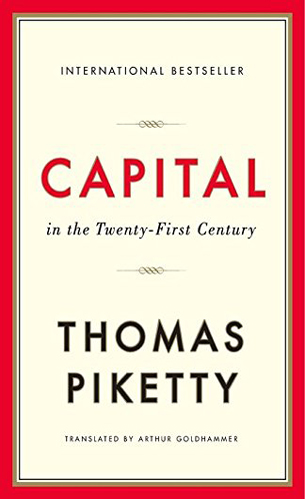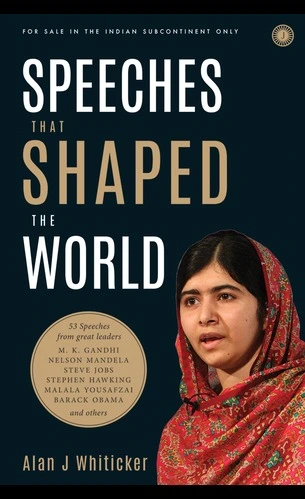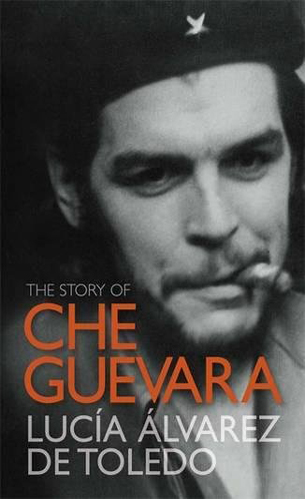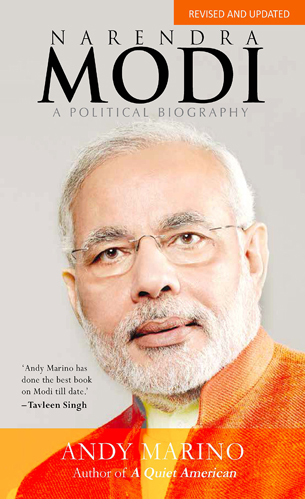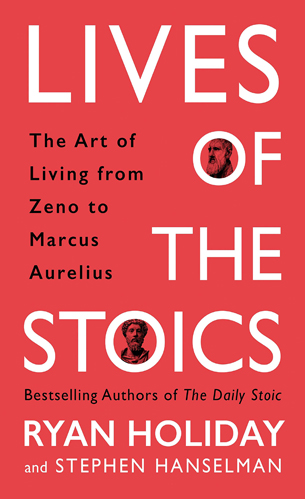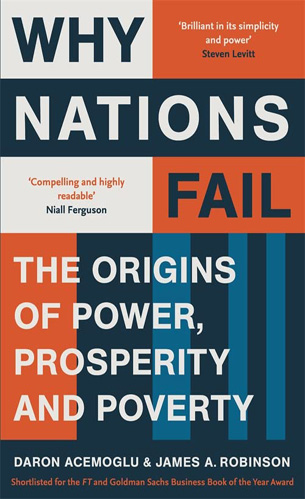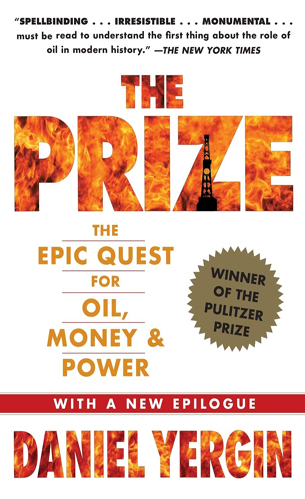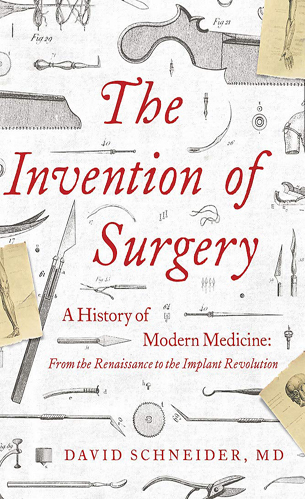Category
- Discounted Books
- English Book Bundles
- University Magazines
- சிறுவர்களுக்கான புத்தகங்கள்
- Children Books
- English Books
- Current Affairs
- Military & Intelligence
- Short Stories
- Fiction
- Poetry
- Environment & Nature
- Science
- Medicine
- Linguistics
- Atheism & Agnosticism
- (Auto)Biography & Memoir
- Business & Management
- Creativity
- Economics
- Education & Research
- Health & Nutrition
- History
- Humor
- Love & Relationships
- Parenting
- Personal Development
- Personal Finance
- Philosophy
- Politics
- War
- Psychology
- Religion & Spirituality
- Society & Culture
- Sports
- Travel & Adventure
- Technology & the Future
- True Crime
- Women Empowerment
- தமிழ் Books
- Book Bundles ( தமிழ் )
- சட்டம்
- இயற்கை
- கட்டுரை
- கணிதம்
- பயணக்குறிப்புகள்
- விவசாயம்
- அரசியல்
- ஆரோக்கியம்
- உளவியல்
- புனைவு
- காதல் மற்றும் உறவு
- சமூகவியல்
- சுயசரிதைகள் மற்றும் நினைவுகள்
- சுயமுன்னேற்றம்
- தத்துவஞானம்
- தொழில்நுட்பம் & எதிர்காலம்
- பொருளாதாரம்
- போர்
- பணம்
- மதம் & ஆன்மீகம்
- வணிகம் & மேலாண்மை
- வரலாறு
- விஞ்ஞானம் & பிரபல அறிவியல்
- விளையாட்டு
- சினிமா
- கவிதைகள்
- குழந்தை வளர்ப்பு
- குற்றம்
- மருத்துவம்
- மொழி
Product categories
- Children Books
- Discounted Books
- English Book Bundles
- English Books
- (Auto)Biography & Memoir
- Atheism & Agnosticism
- Business & Management
- Creativity
- Current Affairs
- Economics
- Education & Research
- Environment & Nature
- Fiction
- Health & Nutrition
- History
- Humor
- Linguistics
- Love & Relationships
- Medicine
- Military & Intelligence
- Parenting
- Personal Development
- Personal Finance
- Philosophy
- Poetry
- Politics
- Psychology
- Religion & Spirituality
- Science
- Short Stories
- Society & Culture
- Sports
- Technology & the Future
- Travel & Adventure
- True Crime
- War
- Women Empowerment
- University Magazines
- சிறுவர்களுக்கான புத்தகங்கள்
- தமிழ் Books
- Book Bundles ( தமிழ் )
- அரசியல்
- ஆரோக்கியம்
- இயற்கை
- உளவியல்
- கட்டுரை
- கணிதம்
- கவிதைகள்
- காதல் மற்றும் உறவு
- குற்றம்
- குழந்தை வளர்ப்பு
- சட்டம்
- சமூகவியல்
- சினிமா
- சுயசரிதைகள் மற்றும் நினைவுகள்
- சுயமுன்னேற்றம்
- தத்துவஞானம்
- தொழில்நுட்பம் & எதிர்காலம்
- பணம்
- பயணக்குறிப்புகள்
- புனைவு
- பொருளாதாரம்
- போர்
- மதம் & ஆன்மீகம்
- மருத்துவம்
- மொழி
- வணிகம் & மேலாண்மை
- வரலாறு
- விஞ்ஞானம் & பிரபல அறிவியல்
- விளையாட்டு
- விவசாயம்
Capital in the Twenty-First Century
Rs. 3,990.00

Thomas Piketty
- A New York Times #1 Bestseller
- An Amazon #1 Bestseller
- A Wall Street Journal #1 Bestseller
- A USA Today Bestseller
- A Sunday Times Bestseller
- A Guardian Best Book of the 21st Century
- Winner of the Financial Times and McKinsey Business Book of the Year Award 2014
- Winner of the British Academy Medal
- Finalist, National Book Critics Circle Award
“It seems safe to say that Capital in the Twenty-First Century, the magnum opus of the French economist Thomas Piketty, will be the most important economics book of the year―and maybe of the decade. Piketty, arguably the world’s leading expert on income and wealth inequality, does more than document the growing concentration of income in the hands of a small economic elite. He also makes a powerful case that we’re on the way back to ‘patrimonial capitalism,’ in which the commanding heights of the economy are dominated not just by wealth, but also by inherited wealth, in which birth matters more than effort and talent.”―Paul Krugman, New York Times
“In its magisterial sweep and ambition, Piketty’s latest work, Capital in the Twenty-First Century, is clearly modeled after Marx’s Das Kapital. But where Marx’s research was spotty, Piketty’s is prodigious. And where Marx foresaw capitalism’s collapse leading to a utopian proletariat paradise, Piketty sees a future of slow growth and Gilded Age disparities in which the wealthy–owners of capital–capture a steadily larger share of global wealth and income…Piketty’s Capital in the Twenty-First Century is an intellectual tour de force, a triumph of economic history over the theoretical, mathematical modeling that has come to dominate the economics profession in recent years. Piketty offers a timely and well-reasoned reminder that there is nothing inevitable about the dominance of human capital over financial capital, and that there is inherent in the dynamics of capitalism a natural and destabilizing tendency toward inequality of income, wealth and opportunity.”―Steven Pearlstein, Washington Post
“Magisterial… Bursting with ideas… This book is economics at its best.”―Philip Roscoe, Times Higher Education
“In Capital in the Twenty-first Century, Piketty sums up his research, tracing the history and pattern of economic inequality across a number of countries from the eighteenth century to the present, analyzing its causes, and evaluating some policy fixes. Spanning nearly 700 densely packed pages, it’s a big book in more than one sense of the word. Clearly written, ambitious in scope, rooted in economics but drawing on insights from related fields like history and sociology, Piketty’s Capital resembles nothing so much as an old-fashioned work of political economy by the likes of Adam Smith, David Ricardo, Karl Marx, or John Maynard Keynes. But what is particularly exciting about this book is that, due to advances in technology, Piketty is able to draw on data that not only spans a substantially longer historical time frame, but is also necessarily more complete and consistent than the records earlier theorists were forced to rely on. As a result, his analysis is significantly more comprehensive than those of his predecessors― and easily as persuasive… Capital is a consistently engrossing read, encompassing topics including the stunning comeback that inherited wealth has made in today’s advanced economies, the dubiousness of the economic theory that a worker’s wage is equal to his or her marginal productivity, the moral insidiousness of meritocratic justifications of inequality, and more. But the book’s major strength lies in Piketty’s ability to see the big picture. His original and rigorously well-documented insights into the deep structures of capitalism show us how the dynamics of capital accumulation have played out historically over the past three centuries, and how they’re likely to develop in the century to come… America’s twenty-first-century inequality crisis is, if anything, even more daunting and complex than the one we experienced a century ago. But as Piketty reminds us, the solutions to this problem are political, and they lie within our grasp. Should Americans choose to deploy those solutions, not only would we be doing the right thing, we’d be living up to our deepest traditions and most cherished ideals.”―Kathleen Geier, Washington Monthly
Out of stock
Notify me when stock available
What are the grand dynamics that drive the accumulation and distribution of capital? Questions about the long-term evolution of inequality, the concentration of wealth, and the prospects for economic growth lie at the heart of political economy. But satisfactory answers have been hard to find for lack of adequate data and clear guiding theories. In Capital in the Twenty-First Century, Thomas Piketty analyzes a unique collection of data from twenty countries, ranging as far back as the eighteenth century, to uncover key economic and social patterns. His findings will transform debate and set the agenda for the next generation of thought about wealth and inequality.
Piketty shows that modern economic growth and the diffusion of knowledge have allowed us to avoid inequalities on the apocalyptic scale predicted by Karl Marx. But we have not modified the deep structures of capital and inequality as much as we thought in the optimistic decades following World War II. The main driver of inequality―the tendency of returns on capital to exceed the rate of economic growth―today threatens to generate extreme inequalities that stir discontent and undermine democratic values. But economic trends are not acts of God. Political action has curbed dangerous inequalities in the past, Piketty says, and may do so again.
A work of extraordinary ambition, originality, and rigor, Capital in the Twenty-First Century reorients our understanding of economic history and confronts us with sobering lessons for today.
About the Author
Thomas Piketty (French: [tɔˈma pikɛˈti]; born on 7 May 1971) is a French economist who works on wealth and income inequality. He is a professor (directeur d’études) at the École des hautes études en sciences sociales (EHESS), professor at the Paris School of Economics and Centennial professor at the London School of Economics new International Inequalities Institute.
He is the author of the best-selling book Capital in the Twenty-First Century (2013), which emphasises the themes of his work on wealth concentrations and distribution over the past 250 years. The book argues that the rate of capital return in developed countries is persistently greater than the rate of economic growth, and that this will cause wealth inequality to increase in the future. He considers that to be a problem, and to address it, he proposes redistribution through a progressive global tax on wealth.
Book Specifications
Title: Capital in the Twenty-First Century
Author: Thomas Piketty
Language: English
Binding: Paperback
Pages: 816
Weight: 680g
Published Year: 2014
Publisher: Harvard University Press
ISBN: 978-0674980259
Dimensions: 14 x 1.5 x 21.6 cm
Print size: Please feel free to drop us a message.
Related products
-
Speeches that Shaped the World
Rs. 1,690.00or 3 X Rs.563.33 with Read more
Read moreAlan J. Whiticker
53 Speeches from great leaders M. K. GANDHI, NELSON MANDELA, STEVE JOBS, STEPHEN HAWKING, MALALA YOUSAFZAI, BARACK OBAMA and others. The passing of time allows many speeches to take on a deeper meaning and poignancy. Others have become an iconic part of our times.
Alan J. Whiticker’s Speeches that Shaped the World is a collection of the most potent and memorable speeches throughout history. These speeches highlight recurring themes such as politics and power, war and peace, civil rights and human rights. What they all have in common is the power to inspire—emotionally, politically and socially.In this brilliant collection, many of history’s greatest orators and pivotal moments are featured. These speeches shaped and changed the world. Different eras and many nations are represented, with several speeches from famous women—speeches of clarity and hope. Along with famous names like John F. Kennedy, Martin Luther King, Franklin D. Roosevelt, Winston Churchill, Mahatma Gandhi, Nelson Mandela, Margaret Thatcher and Hillary Clinton there are also lesser known orators who are remembered for making their mark on history.
-
The Story of Che Guevara
Rs. 2,890.00or 3 X Rs.963.33 with Read more
Read moreLucía Álvarez de Toledo
‘Lucía Álvarez de Toledo captures the essence of Che the man with a heart-warming and inspirational text … a most rewarding book, whose significance should not be underestimated’ ― Morning Star
An accessible biography of one of the most influential figures of recent times based on new, original research.
Che Guevara is something of a symbol in the West. But for the rest of the world he is different: a charismatic revolutionary who redrew the political map of Latin America and gave hope to those resisting colonialism everywhere. In The Story of Che Guevara Lucía Álvarez de Toledo follows Che from his birth in Rosario and his early years in his parent’s maté plantation, to his immortal motorcycle journeys across South America, his role at the heart of Castro’s new Cuban government, and through to the unforgiving jungle that formed the backdrop to his doomed campaigns in the Congo and Bolivia.
Based on interviews with Che’s family and those who knew him intimately, this is an accessible biography that concentrates on the man rather than the icon. With the political developments in Latin America in the twenty-first century, his influence can be seen to be even greater than it was during his lifetime and The Story of Che Guevara is a perfect introduction to an extraordinary man.
-
The Splendid and the Vile: A Saga of Churchill, Family and Defiance During the Blitz
Rs. 3,890.00Original price was: Rs. 3,890.00.Rs. 2,990.00Current price is: Rs. 2,990.00.or 3 X Rs.996.67 with Read more
Read moreErik Larson
- #1 New York Times Bestseller
- Goodreads Choice Award Nominee for History & Biography (2020)
‘Fresh, fast and deeply moving … Larson’s deft portraits show the essential connection that words created between the powerful and the powerless, capturing the moments that defined life for millions struggling to survive the decisions of a few’ New York Times Book Review
‘If you want to look back at a really important part of history with fresh eyes, this is the book for you … Gripping and wonderful’ Alan Carr
‘There are countless books about World War II, but there’s only one Erik Larson … There are many things to admire about The Splendid and the Vile, but chief among them is Larson’s electric writing. The book reads like a novel, and even though everyone (hopefully) knows how the war ultimately ended, he keeps the reader turning the pages with his gripping prose.’ NPR
‘A particularly gripping read, written with bounce and brio. Larson pulls together vivid vignettes – some moving, some amusing, a few grim … A fine writer of narrative nonfiction history.’ Robbie Millen, Times
‘A captivating history of Churchill’s heroic year, with more than the usual emphasis on his intimates.’ Kirkus Reviews (starred review)
‘This book is peppered with eye-popping details … A deeply compelling work of history … Without resorting to heroism, it makes one long powerfully for real leadership’ Lit Hub
-
Narendra Modi: A political Biography
Rs. 2,690.00Original price was: Rs. 2,690.00.Rs. 2,390.00Current price is: Rs. 2,390.00.or 3 X Rs.796.67 with Read more
Read moreAndy Marino
‘Andy Marino has done the best book on Modi to date. It is the only biography that gives an unbiased view of who Modi is.’ –Tavleen Singh
‘This political biography analyses the contrasting views on the Gujarat model of governance with detailed statistical inputs to provide a balanced account. Personal details of Modi’s early life, his rise through the political ranks, and his personal philosophy on religion and politics are revealed in this fast-paced, revelatory and readable book.” – The Financial Express
*Containing exclusive details… this book strives to present a fair picture of the man behind Gujarat’s transformation. [The] biography promises to give readers an insight into the inner workings of Modi’s methods of governance.’ — The New Indian Express, Chennai
‘Andy Marino’s biography stands out in providing a balanced and factually objective account.’ — Deepak Lal, James S. Colman Professor Emeritus of International Development Studies at the University of California, Los Angeles, in Financial Times, London
‘The uniqueness of Andy Marino’s portrayal is that he has got the subject himself to talk about his life and times. (He) throws light on key details most other biographers have either consciously avoided or just glossed over … . [The] most holistic biography of Narendra Modi since 2002.’ — Abhiram Ghadyalpatil
-
Lives of the Stoics: The Art of Living from Zeno to Marcus Aurelius
Rs. 2,990.00or 3 X Rs.996.67 with Read more
Read moreRyan Holiday & Stephen Hanselman
- INSTANT NEW YORK TIMES BESTSELLER
- #1 WALL STREET JOURNAL BESTSELLER
- A New York Times Noteworthy Pick
Stellar work … This illuminating collection of biographies makes great use of Stoic wisdom to demonstrate the tradition’s values ― Publisher’s Weekly
In story after page-turning story, Lives of the Stoics brings ancient philosophers to life. — David Epstein, bestselling author of Range
A great read, particularly for a tough time — Gen. Stanley McChrystal, author of ‘Team of Teams’ and ‘Leaders: Myth and Reality’
There is philosophy for school and philosophy for life. This book is about the lives of men and women who lived their words and shows you how to do the same. — Thomas Tull, founder of Legendary Entertainment
With its emphasis on individual success and perseverance, stoicism is seeing an American renaissance. The authors offer brief instructional biographies of its major ancient practitioners. ― New York Times
“The Stoics were more than just thinkers. They were athletes and generals and emperors and husbands and daughters and parents. This is a wonderful book that shows you the lives behind the philosophers whose words have shaped the world.” –Chris Bosh, 2x NBA Champion
“Ryan Holiday and Stephen Hanselman have achieved something remarkable with Lives of the Stoics. It’s a gift to the many of us today who are searching for inspiration and sense a deep connection with the thought of Zeno, Cato, Seneca, Epictetus, and Marcus Aurelius. At last the story we needed has been told! Indispensable to anyone who genuinely wants to learn about Stoic philosophy.”
–Donald Robertson, author of How to Think Like a Roman Emperor -
Guns, Germs, and Steel: The Fates of Human Societies
Rs. 2,990.00or 3 X Rs.996.67 with Read more
Read moreJared Diamond
- New York Times Bestseller
- Pulitzer Prize for General Nonfiction (1998)
- Royal Society Science Book Prize for General Prize (1998)
- California Book Award for Nonfiction (Gold) (1997)
- Puddly Award for History (2001)
- Phi Beta Kappa Award in Science (1997)
‘A book of big questions, and big answers‘ Yuval Noah Harari, bestselling author of Sapiens
“Artful, informative, and delightful…. There is nothing like a radically new angle of vision for bringing out unsuspected dimensions of a subject, and that is what Jared Diamond has done.” ― William H. McNeil, New York Review of Books
“An ambitious, highly important book.” ― James Shreeve, New York Times Book Review
“A book of remarkable scope, a history of the world in less than 500 pages which succeeds admirably, where so many others have failed, in analyzing some of the basic workings of culture process…. One of the most important and readable works on the human past published in recent years.” ― Colin Renfrew, Nature
“The scope and the explanatory power of this book are astounding.”
― The New Yorker“No scientist brings more experience from the laboratory and field, none thinks more deeply about social issues or addresses them with greater clarity, than Jared Diamond as illustrated by Guns, Germs, and Steel. In this remarkably readable book he shows how history and biology can enrich one another to produce a deeper understanding of the human condition.” ― Edward O. Wilson, Pellegrino University Professor, Harvard University
“Serious, groundbreaking biological studies of human history only seem to come along once every generation or so. . . . Now [Guns, Germs, and Steel] must be added to their select number. . . . Diamond meshes technological mastery with historical sweep, anecdotal delight with broad conceptual vision, and command of sources with creative leaps. No finer work of its kind has been published this year, or for many past.” ― Martin Sieff, Washington Times
“[Diamond] is broadly erudite, writes in a style that pleasantly expresses scientific concepts in vernacular American English, and deals almost exclusively in questions that should interest everyone concerned about how humanity has developed. . . . [He] has done us all a great favor by supplying a rock-solid alternative to the racist answer. . . . A wonderfully interesting book.” ― Alfred W. Crosby, Los Angeles Times
“An epochal work. Diamond has written a summary of human history that can be accounted, for the time being, as Darwinian in its authority.” ― Thomas M. Disch, The New Leader
-
Metamorphosis
Rs. 990.00or 3 X Rs.330.00 with Read more
Read moreFranz Kafka
“Kafka’s stoic Euro-alienation meets and merges with Kuper’s thoroughly American rock and roll alienation.”—Jules Feiffer
“The ride from book to comic can be bumpy. Mr. Kuper navigates the transition with precision.”—New York Times
“Kafka’s anguished archetypal characters are easily rendered into visual equivalents and given new life in Kuper’s raw, expressionistic graphic style.”—Publishers Weekly
“Darkly appropriate . . . Kuper’s work rivals that of Art Spiegelman.”—Chicago Sun-Times
“Bubbling beneath the surface is a caustic batch of black humor that is as much unsettling as it is absurd. This is the magic of Kafka. And Kuper gives it a postmodern edge here, with an intriguing dance of picture and text.”—Gannett News Service
-
Why Nations Fail: The Origins of Power, Prosperity, and Poverty
Rs. 4,690.00or 3 X Rs.1,563.33 with Add to cart
Add to cartDaron Acemoglu and James A. Robinson
Buy why nations fail and get it delivered to your doorstep.
“You will have three reasons to love this book. It’s about national income differences within the modern world, perhaps the biggest problem facing the world today. It’s peppered with fascinating stories that will make you a spellbinder at cocktail parties—such as why Botswana is prospering and Sierra Leone isn’t. And it’s a great read. Like me, you may succumb to reading it in one go, and then you may come back to it again and again.” —Jared Diamond, Pulitzer Prize–winning author of the bestsellers Guns, Germs, and Steel and Collapse
“For economics and political-science students, surely, but also for the general reader who will appreciate how gracefully the authors wear their erudition.”—Kirkus Reviews
“Why Nations Fail is a wildly ambitious work that hopscotches through history and around the world to answer the very big question of why some countries get rich and others don’t.” —The New York Times (Chrystia Freeland)
“Why Nations Fail is a splendid piece of scholarship and a showcase of economic rigor.” —The Wall Street Journal
“This is an intellectually rich book that develops an important thesis with verve. It should be widely read.” —Financial Times
“Why Nations Fail is a truly awesome book. Acemoglu and Robinson tackle one of the most important problems in the social sciences—a question that has bedeviled leading thinkers for centuries—and offer an answer that is brilliant in its simplicity and power. A wonderfully readable mix of history, political science, and economics, this book will change the way we think about economic development. Why Nations Fail is a must-read book.” —Steven Levitt, coauthor of Freakonomics
“Some time ago a little-known Scottish philosopher wrote a book on what makes nations succeed and what makes them fail. The Wealth of Nations is still being read today. With the same perspicacity and with the same broad historical perspective, Daron Acemoglu and James Robinson have retackled this same question for our own times. Two centuries from now our great-great- . . . -great grandchildren will be, similarly, reading Why Nations Fail.” —George Akerlof, Nobel laureate in economics, 2001
“It’s the politics, stupid! That is Acemoglu and Robinson’s simple yet compelling explanation for why so many countries fail to develop. From the absolutism of the Stuarts to the antebellum South, from Sierra Leone to Colombia, this magisterial work shows how powerful elites rig the rules to benefit themselves at the expense of the many. Charting a careful course between the pessimists and optimists, the authors demonstrate history and geography need not be destiny. But they also document how sensible economic ideas and policies often achieve little in the absence of fundamental political change.”—Dani Rodrik, Kennedy School of Government, Harvard University
-
The Prize: The Epic Quest for Oil, Money & Power
Rs. 6,790.00Original price was: Rs. 6,790.00.Rs. 5,990.00Current price is: Rs. 5,990.00.or 3 X Rs.1,996.67 with Read more
Read moreDaniel Yergin
Winner of the Pulitzer Prize and hailed as “the best history of oil ever written” by Business Week, Daniel Yergin’s “spellbinding…irresistible” (The New York Times) account of the global pursuit of oil, money, and power addresses the ongoing energy crisis.
“Splendid and epic history of oil…. The story is brilliantly told…with its remarkable cast of characters.” — The Wall Street Journal
“Impassioned and riveting…only in the great epics of Homer will readers regularly run into a comparable string of larger-than-life swashbucklers and statesmen, heroes and villains.” — San Francisco Examiner
“A masterly narrative…The Prize portrays the interweaving of national and corporate interests, the conflicts and stratagems, the miscalculations, the follies, and the ironies.” — James Schlesinger, former U.S. Secretary of Defense and U.S. Secretary of Energy
“Spellbinding…irresistible…monumental…must be read to understand the first thing about the role of oil in modern history.” — The New York Times
-
The Invention of Surgery: A History of Modern Medicine: From the Renaissance to the Implant Revolution
Rs. 2,990.00Original price was: Rs. 2,990.00.Rs. 2,690.00Current price is: Rs. 2,690.00.or 3 X Rs.896.67 with Read more
Read moreDr. David Schneider
“Brace yourself! The Invention of Surgery is a globetrotting historical adventure, told from the inside of the operating room. Through a series of colorful, bizarre and, at times, stomach-churning stories, Dr. Schneider reveals how the human, messy side of surgical history adds up to the wondrous advances we see today. This is medical writing at its most exhilarating.”
– Michael Paul Mason, author of Head Cases: Stories of Brain Injury and Its Aftermath“Comprehensively researched, deftly told, and radiating both intellect and passion, The Invention of Surgery is essential reading for anyone interested not only in the history but also in the future of medicine. This book is a labor of love, and it shows.”
– Frank Huyler, author of The Blood of Strangers: Stories from Emergency Medicine“Rampaging through surgery’s history, David Schneider’s unique take on its heroes and their achievements is cut with poignant, pithy stories from his own experience of repairing our bodies. He celebrates the audacity of putting something foreign inside of us, ruminates on its current costs and ethics, and asks us to join him on a fascinating ride into the future of implants.”
– Helen Bynum PhD, author of Spitting Blood: The History of Tuberculosis“Bold and compelling… Uniformly excellent, and often wryly amusing.“– The Wall Street Journal
“A history of surgery that is informative, entertaining, and highly readable.” –Library Journal

